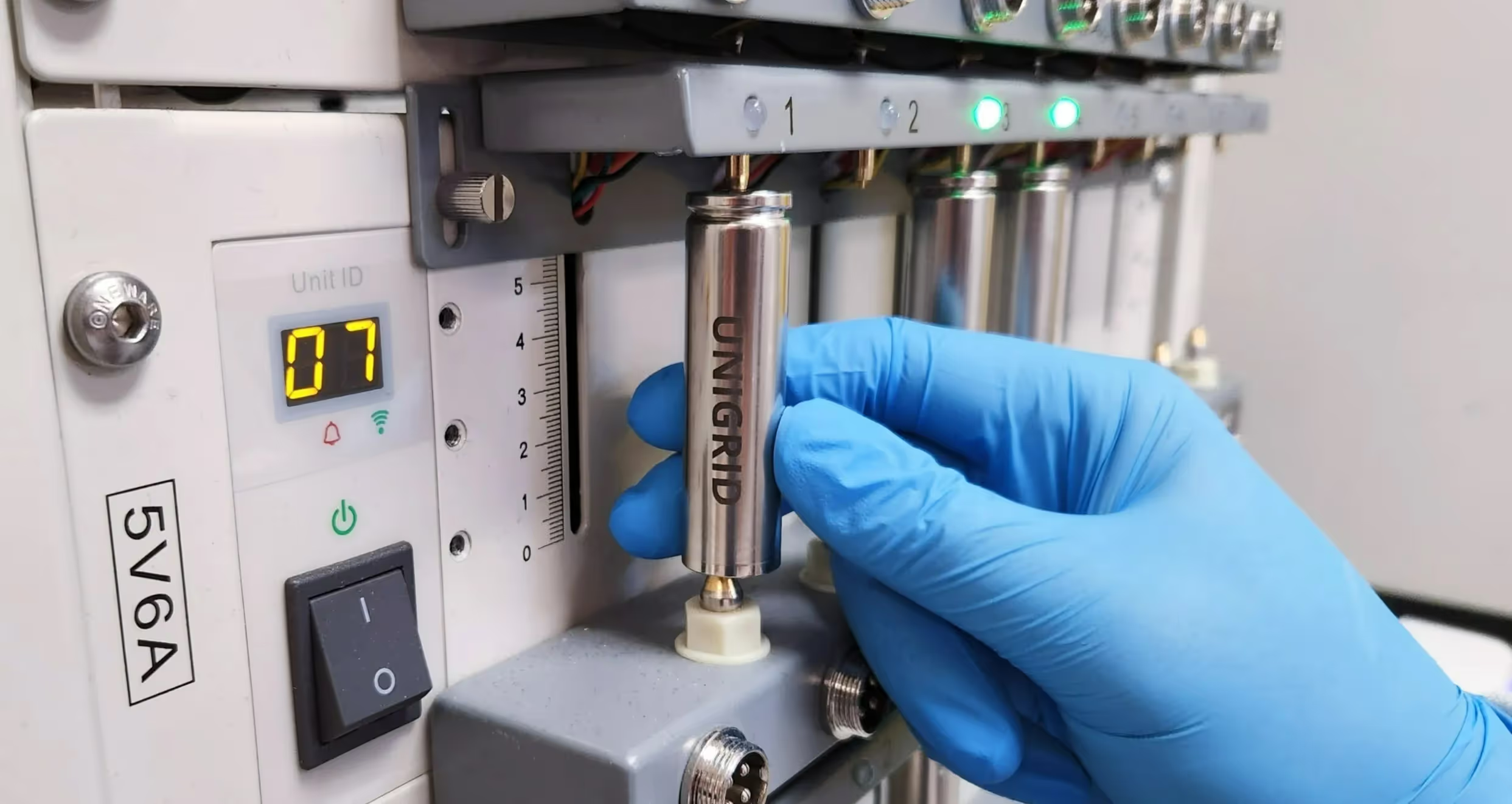
Performance Testing of Unigrid’s Sodium-Ion Battery Cells
Project Description
Unigrid, a startup developing high-energy-density sodium-ion batteries, has partnered with UC San Diego’s Energy Storage Group to test the performance, durability, and safety of its innovative cylindrical battery cells.
Sodium-ion technology presents a cost-effective and abundant alternative to lithium-ion batteries, addressing supply chain limitations while improving safety and energy efficiency. Unigrid’s anode technology doubles the energy density of standard sodium-ion cells, making them ideal for applications in light electric mobility and distributed stationary storage.
The goal of this project is to validate Unigrid’s battery performance under real-world conditions, ensuring its viability for commercial energy storage applications.
Testing & Evaluation Process
Over a 9-month testing period, UC San Diego researchers will assess key battery performance metrics, including:
- Initial Capacity Check – Evaluating baseline performance of all received battery cells.
- Rate Testing – Measuring how well the cells handle different charge and discharge rates.
- Temperature & Cycle Life Testing – Conducting long-term cycling tests at various temperatures to assess durability.
- DC Internal Resistance (DCIR) Measurements – Analyzing battery efficiency by recording resistance every 10th cycle.
- Aging & Self-Discharge Testing – Measuring energy retention over time with test cycles occurring daily, weekly, or monthly.
Testing will be conducted at three different temperature conditions, simulating real-world storage and operating environments. The final report will be completed by December 2025 or earlier.
Project Results
(Results will be updated as testing progresses.)
Initial Findings:
- Energy Density Performance – Assessing improvements over standard sodium-ion technology.
- Thermal Stability & Safety – Evaluating how sodium-ion chemistry mitigates fire hazards compared to lithium-ion batteries.
- Long-Term Durability – Measuring degradation rates to estimate commercial lifespan.
- Commercial Viability – Determining suitability for light EVs and stationary storage applications.
Next Steps:
- Optimization & Scaling – Using test data to refine Unigrid’s battery design for larger-scale deployment.
- Commercialization Readiness – Identifying improvements needed for mass production and real-world integration.
- Extended Testing – Evaluating performance in grid-scale and mobility applications beyond the initial test period.
By conducting rigorous performance testing, this project will help Unigrid bring its high-density, low-cost sodium-ion batteries closer to market, accelerating the transition to safer and more sustainable energy storage solutions.
Interested in partnering on research?



